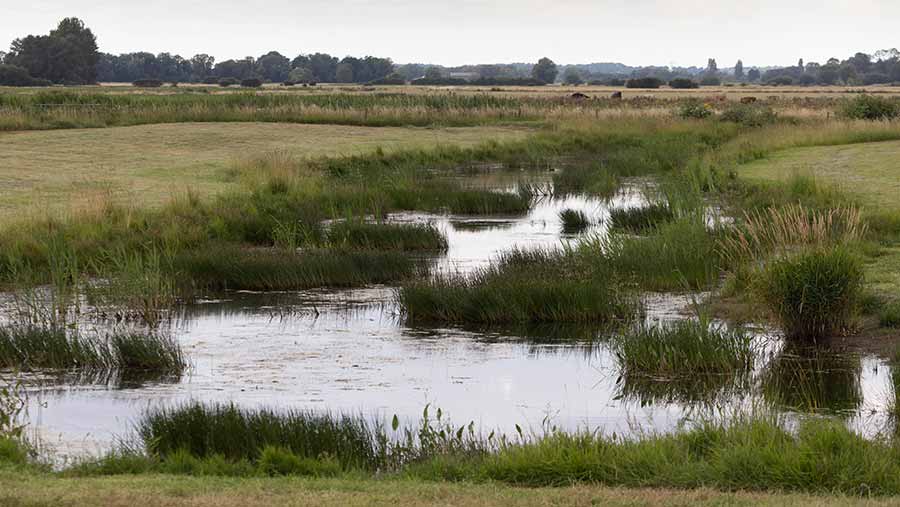Landscape Recovery: Farmers advised to apply for round two
 Any farmland turned into wetlands under future schemes could become liable for IHT at 40% if it does not attract APR © Tim Scrivener
Any farmland turned into wetlands under future schemes could become liable for IHT at 40% if it does not attract APR © Tim Scrivener Farmers and land managers in England are being encouraged to look at what’s on offer in Defra’s Landscape Recovery scheme.
The Landscape Recovery (LR) programme is one of the government’s three new Environmental Land Management (ELM) schemes, alongside the Sustainable Farming Incentive (SFI) and Countryside Stewardship.
The scheme, which is being administered by Natural England and the Environment Agency, will help partnerships take a large-scale, long-term approach to managing their land.
See also: Landscape Recovery scheme round two: How it works
Round two, which is now open for online applications until 12pm on 21 September, is looking for up to 25 projects of at least 500ha that target net zero, protected sites and habitat creation. In total, £15m of funding application is available.
Eligible projects include those which are seeking to create, improve or sustainably manage woodland, restore and maintain peatland or improve the conditions of protected sites.
Defra has published detailed guidance and information on Gov.uk on how to submit an application. Registration is open now for a webinar at 10am on 8 August, which aims to offer advice on how to use the Atamis application site.
Meanwhile, the AHDB, in conjunction with Harper Adams University, has carried out research (PDF) looking into farmers’ attitudes towards the new ELM schemes, exploring the benefits and any barriers and challenges they have faced when applying.
Five key messages from the LR application process include:
- Involve experts from early on in the process
- Gain buy-in from local farmers, as their involvement will be crucial
- Seek expert advice from organisations such as Natural England and the Wildlife Trusts
- Have a dedicated facilitator to help manage the application and coordinate the group
- Ensure all the finance is in place before proceeding with the application.
